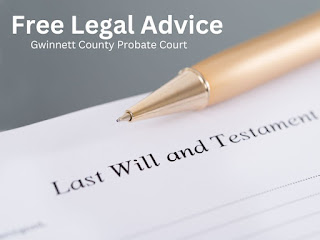Waiting for an Inheritance? Get a Probate Advance Now (2022)
Probate Defined
Probate is the formal legal process that gives recognition to a will and appoints the personal representative, executor or executrix who will administer the estate and distribute assets to the intended beneficiaries pursuant to the order of the probate court. The process ensures that the creditors of the decedent have an opportunity to file claims against the estate and that other interested parties have a chance to challenge the decedent’s will. All of this takes time while the beneficiaries are often caught in the middle with bills and other estate-related obligations coming due, some needing money immediately to preserve the property, perhaps from foreclosure, maintenance and prepare it for sale. Meanwhile, the estate documents may not even have been filed or have been filed and the beneficiary is waiting for the end of the probate period, potentially years down the road.
This firm offers an inheritance
advance, non-recourse funding made to an entity, estate, individual or trust
who or which is a named heir or beneficiary under a will or trust or heir as a
matter of law under an intestate proceeding.
The company reviews the estate and determines within 24 business hours how
much of an advance can be offered and then usually funds in under 48 business
hours. The advance is made to a person
or entity such as non-profits and places of worship who or which is expecting
to be paid some amount of inheritance at some future date out of the
proceeds of some kind of inheritance proceeding, usually an estate probate
court proceeding, but possibly a trust administration.
A Probate Advance, not a Loan
The funding is non-recourse and
not secured, so there are no fixed due dates, interim payments of principal or
interest due, nor stated rates of interest, fixed or variable. Further, there is no personal liability on
the part of the recipient should the estate turn out to be insolvent or the
proceeds to the heir fall short of what was originally anticipated. If the property sale comes up short, the
proceeds are used up by debt or the distribution takes years, the program
administrator absorbs those risks.
Really, the only situations that will lead to a claim is when the estate
pays the recipient and the recipient refuses to pay back the advance or if
someone lies about their identity or relationship to the estate.
Plan to Stay Involved in the Settlement of the Estate
The program will not buy out an
heir’s entire position. Though flexible,
the target amount of a typical advance is around 30% of the heir’s entire
position because the goal of the program is to provide the recipient with
interim cash sufficient to meet their current needs while still keeping the
priority on the ultimate wind up of the distribution and full-settlement of the
estate. Further, this arrangement may
not be the best fit for everyone so beneficiaries should avoid taking more of
an advance than needed because of the significant fees at the end. Repayment fees of at least ten percent are charged
quarterly, assessed depending on the risks of the estate and based on the
length of time that the advance remains outstanding. The advance is to be repaid by the
administrator or trustee for the account of the recipient when and if the
estate pays out a distribution.
Frequently Asked Questions about this Probate Advance
Who qualifies for a probate advance?
Anyone or entity that anticipates
a bequest or inheritance from an estate, including places of worship and
non-profits may qualify for a probate advance through this program. All beneficiaries to an estate are considered
and evaluated individually and no agreement between them is required for one
heir to participate.
May I have an attorney on board with me?
Probate attorneys are welcome to
participate but are not required in order for the process to begin since many
of them charge fees upfront. Further,
the executor or executrix must give permission before details of an estate can
be disclosed to anyone.
What happens if the estate proceeds are insufficient to repay the advance?
There is no personal liability on
the part of the recipient should the estate turn out to be insolvent or the proceeds
to the heir fall short of what was originally anticipated. If the proceeds come up short, the program
administrator absorbs those risks.
In Conclusion
Other sources of funding may be a
better match for those in need with the required access given the high costs
associated with this program.
But a probate advance may be a good option to obtain badly needed cash
when all of the other resources have been exhausted or have failed. If this program is of interest, please write me with your contact information including a telephone number so that the information may be passed on to the provider. Interested parties are certainly welcome to call me at (770) 271-2156, but what is written here is what I know, so you'll likely hear from the law firm rather than me once your information is provided.
Disclosure
Solomon Greene, Mobile Notary Public


